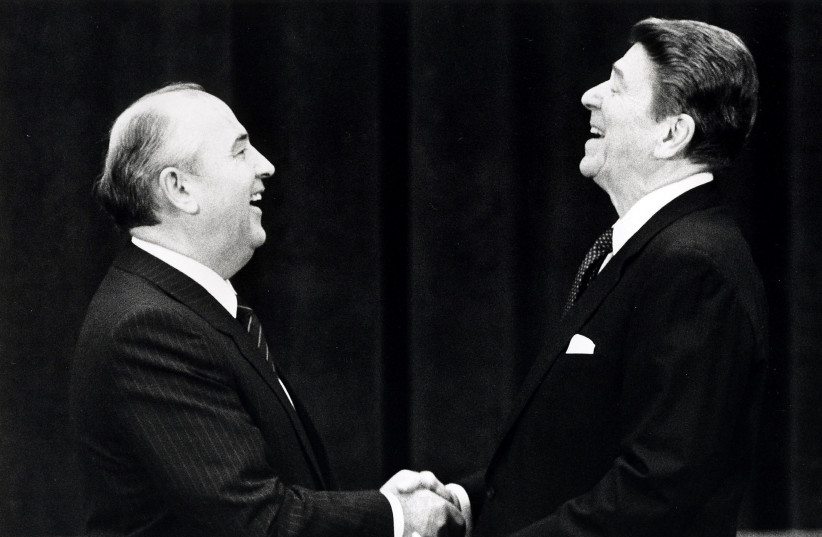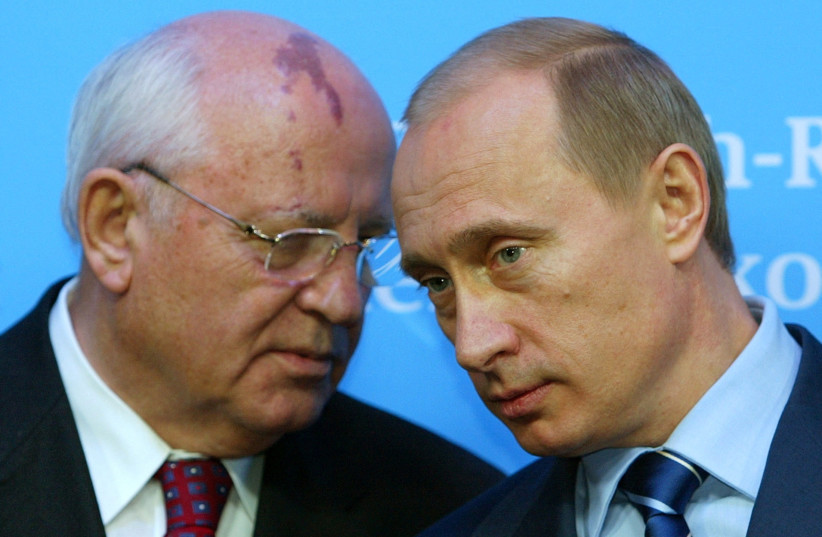Mikhail Gorbachev, who ended the Cold War without bloodshed but failed to prevent the collapse of the Soviet Union, died on Tuesday at the age of 91, Russian news agencies cited hospital officials as saying.
Gorbachev, the last Soviet president, forged arms reduction deals with the United States and partnerships with Western powers to remove the Iron Curtain that had divided Europe since World War Two and bring about the reunification of Germany.
"Mikhail Gorbachev passed away tonight after a serious and protracted disease," Interfax news agency cited Russia's Central Clinical Hospital as saying in a statement.
Gorbachev will be buried in Moscow's Novodevichy Cemetery next to his wife Raisa, who died in 1999, said Tass news agency, citing a source familiar with the family's wishes.

Refusing to use force against pro-democracy protests in Russia
When pro-democracy protests swept across the Soviet bloc nations of communist Eastern Europe in 1989, he refrained from using force - unlike previous Kremlin leaders who had sent tanks to crush uprisings in Hungary in 1956 and Czechoslovakia in 1968.
But the protests fueled aspirations for autonomy in the 15 republics of the Soviet Union, which disintegrated over the next two years in chaotic fashion.
Gorbachev struggled in vain to prevent that collapse.
A failed attempt at revitalizing communism in the Soviet Union
"The era of Gorbachev is the era of perestroika, the era of hope, the era of our entry into a missile-free world ... but there was one miscalculation: we did not know our country well," said Vladimir Shevchenko, who headed Gorbachev's protocol office when he was Soviet leader.
"Our union fell apart, that was a tragedy and his tragedy," RIA news agency cited him as saying.
On becoming general secretary of the Soviet Communist Party in 1985, aged just 54, he had set out to revitalize the system by introducing limited political and economic freedoms, but his reforms spun out of control.
His policy of "glasnost" - free speech - allowed previously unthinkable criticism of the party and the state, but also emboldened nationalists who began to press for independence in the Baltic republics of Latvia, Lithuania, Estonia and elsewhere.
Many Russians never forgave Gorbachev for the turbulence that his reforms unleashed, considering the subsequent plunge in their living standards too high a price to pay for democracy.
"He gave us all freedom - but we don't know what to do with it."
Ruslan Grinberg
After visiting Gorbachev in hospital on June 30, liberal economist Ruslan Grinberg told the armed forces news outlet Zvezda: "He gave us all freedom - but we don't know what to do with it."
Reactions to the death of Mikhail Gorbachev

Russian President Vladimir Putin expressed his deepest condolences on the death of Gorbachev, Kremlin spokesman Dmitry Peskov told Interfax news agency.
World leaders were quick to pay tribute. European Commission chief Ursula von der Leyen said Gorbachev, who was awarded the Nobel Peace Prize in 1990, had opened the way for a free Europe.
US President Joe Biden said he had believed in "glasnost and perestroika – openness and restructuring – not as mere slogans, but as the path forward for the people of the Soviet Union after so many years of isolation and deprivation."
British Prime Minister Boris Johnson, citing Putin's invasion of Ukraine, said Gorbachev's "tireless commitment to opening up Soviet society remains an example to us all."
Also mourning Gorbachev's death is Ronald S. Lauder, president of the World Jewish Congress (WJC).
"The World Jewish Congress mourns the death of Mikhail Gorbachev, a great statesman, an advocate for freedom and human rights, and a true friend of the Jewish people who through his actions enabled countless Soviet Jews to return to their heritage," Lauder said in a statement. "I extend my deepest condolences to his family."
Israeli reactions to the death of Mikhail Gorbachev
Gorbachev's death was felt in Israel, which is home to a sizeable population of immigrants from the former Soviet Union and their descendants.
“Mikhail Gorbachev was one of the 20th century's most extraordinary figures," said President Isaac Herzog Wednesday morning. "He was a brave and visionary leader, who shaped our world in ways previously
thought unimaginable. I was proud to meet him during his 1992 visit to Israel. Heartfelt condolences to his family and friends.”
"A historic and complex figure. I disagreed with him on many things at the time, but looking back I will forever be grateful for trying to give freedom to the country where I was born and raised," Russia-born Israeli Yesh Atid MK Vladimir Beliak said on Twitter. "This man changed the world."
This is a developing story.
